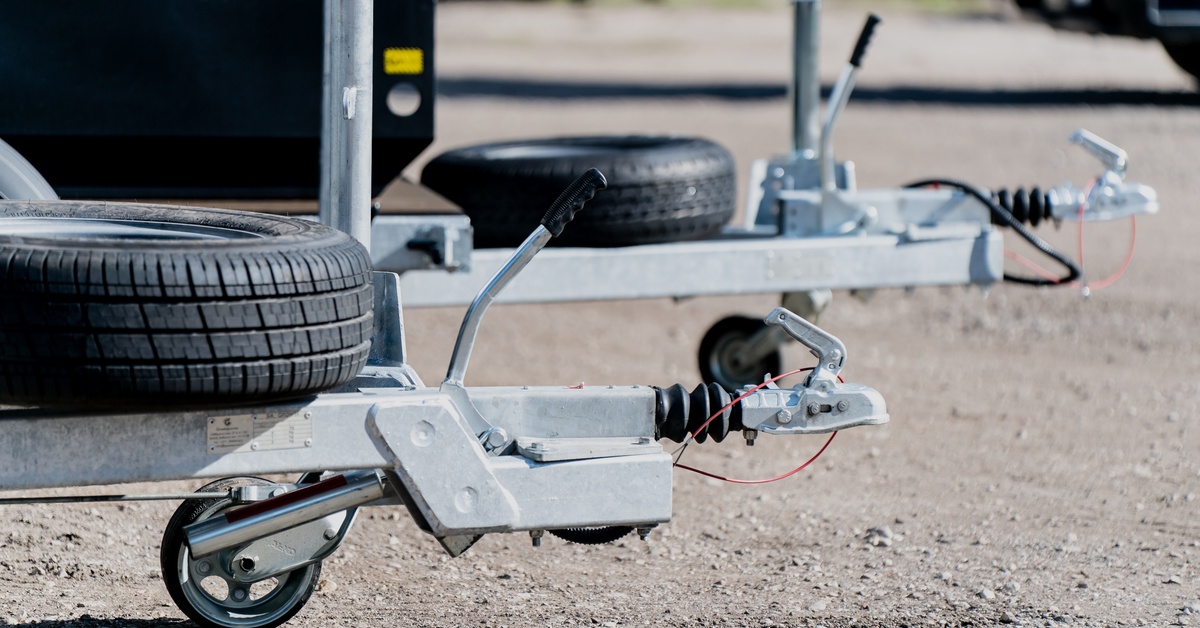Short- vs. Long-Term Trailer Parking: Which Is Right for You?
—
November 20th, 2025

You have a trailer, but you need a place to park it. Whether you own an RV, boat trailer, or utility hauler, finding the right parking solution can be a challenge. You need to decide between the flexibility of short-term parking and the stability of a long-term spot.
The option that ends up being the right one for you will depend on a variety of things. To ensure you make the right choice for your needs, this guide breaks down both options in detail, helping you decide whether to go with short- or long-term parking for your trailer.
Short-Term Trailer Parking: The Basics
Short-term trailer parking is defined as daily, weekly, or monthly storage. It’s designed for trailer owners who require a temporary space between trips or for specific short-term needs, such as vacations or projects.
When Short-Term Parking Makes Sense
Short-term parking is the best option if you:
- Take frequent trips and require regular, quick access to your trailer.
- Use your trailer seasonally and only need storage for a few months.
- Want the freedom to change parking locations based on your travel plans.
- Need a temporary spot while looking for a permanent parking solution.
Pros of Short-Term Parking
The primary benefit of short-term parking is flexibility. You are not committed to a long-term contract, which allows you to move your trailer as your plans change. If you take spontaneous weekend trips or travel multiple times a year, short-term parking gives you the freedom to come and go without restrictions.
Short-term options can also offer variety. Some places will allow you to choose different facilities based on your travel destination, ensuring your trailer is always conveniently located.
Cons of Short-Term Parking
The main disadvantage of short-term parking is the cost. Daily and weekly rates are higher than long-term rates. Even if you store your trailer for several months, the costs will be notably higher than with an annual agreement.
Availability can also be a problem. Short-term parking spots fill up quickly during peak travel seasons. You may have difficulty finding a convenient location when you need it most, particularly in popular areas.
Long-Term Trailer Parking: The Basics
Long-term trailer parking involves contracts for multiple months or entire years. These arrangements are suitable for trailer owners who do not need frequent access and are looking for a secure, permanent storage solution.
When Long-Term Parking Makes Sense
Long-term parking is the right choice if you:
- Use your trailer only a few times per year.
- Require off-season storage during winter or summer.
- Need a secure facility with features like video surveillance and gated access.
- Prefer the stability of a permanent spot and do not plan to move your trailer often.
Pros of Long-Term Parking
The cost savings are the major advantage here. Monthly rates are lower when you commit to a long-term contract. Many facilities even offer discounts for six-month or annual agreements, which makes long-term parking more economical if you do not access your trailer regularly.
Security is another key benefit. Long-term facilities often provide gated access, 24-hour video surveillance, and on-site staff. Your trailer will be protected from theft, vandalism, and weather, providing peace of mind while it is in storage. You also avoid the inconvenience of repeatedly finding a new parking spot.
Cons of Long-Term Parking
The main drawback is the lack of flexibility. If your plans change or you decide to sell your trailer, you will still be obligated to fulfill the contract. Breaking an agreement early can lead to penalties or the loss of your deposit.
Long-term parking also requires a commitment to a single location. If you move or travel to different regions, your trailer may no longer be conveniently located.
Key Factors to Help You Decide
Choosing between short- and long-term trailer parking requires careful consideration of several practical factors. Here are the ones you should definitely keep in mind.
Usage Frequency
Determine how often you will use your trailer. If you are on the road every other weekend, short-term parking is practical. If your trailer remains unused for months at a time, a long-term contract will save you money and reduce the stress of renewing your storage agreement.
Location
Consider the proximity of the facility. Short-term parking near your home or travel routes offers convenience. Long-term facilities might be located farther away since they typically need more space for storage. However, proximity to your home will vary depending on many factors outside of your control, so be sure to consider all of them before deciding.
Security
Evaluate the security features of each facility. Check for 24/7 surveillance, gated entry, good lighting, and on-site security personnel. Long-term facilities typically offer more robust security, but some short-term options also provide adequate protection.
Seasonal Needs
Consider weather and demand. If you only use your trailer in the summer, storing it long-term through the winter is a practical choice. If you travel year-round, the flexibility of short-term parking may suit you better.
Trailer Size
Confirm that the facility can accommodate your trailer. Not all parking facilities can fit every trailer size. Larger trailers may have fewer options, especially in urban locations. Ensure the facility can handle your trailer’s dimensions before signing a contract.
Budget
Compare the costs over time. Short-term parking is flexible but has a higher daily or weekly rate. Long-term contracts have lower monthly rates but require an upfront commitment. Calculate your expected usage to determine which option provides the best value.
Cost Breakdown: Short-Term vs. Long-Term
Since budget is one of the more critical factors to consider, understanding the financial differences of each option will be useful here. To start, short-term parking will have higher daily or weekly rates. You can expect to pay $15–$30 per day or $75–$150 per week from most places. Be aware of hidden fees for services like late pickups, cleaning, or utility hookups.
Since long-term parking typically offers lower monthly rates with a contract, these costs can range from $50–$200, depending on location, security, and other amenities. Some facilities might offer discounts of 10–20% for extended commitments, such as six-month or annual contracts.
Regardless of what you choose, something to note is that you might be able to negotiate your rates. Some facilities have promotional pricing for new customers or offer discounts for referrals. Ask about flexible payment plans or reduced rates during the off-season. Being clear about your budget can help you secure a better deal.
Time To Start the Search
Now that you’re feeling more confident about which storage length is best for you, it’s time to start shopping around. If you live around Oklahoma City and need this type of service, Big Parking Spot is here to help. We proudly offer trailer storage in OKC, so visit our site to see what kinds of payment plans we can set up with you.
Categories
